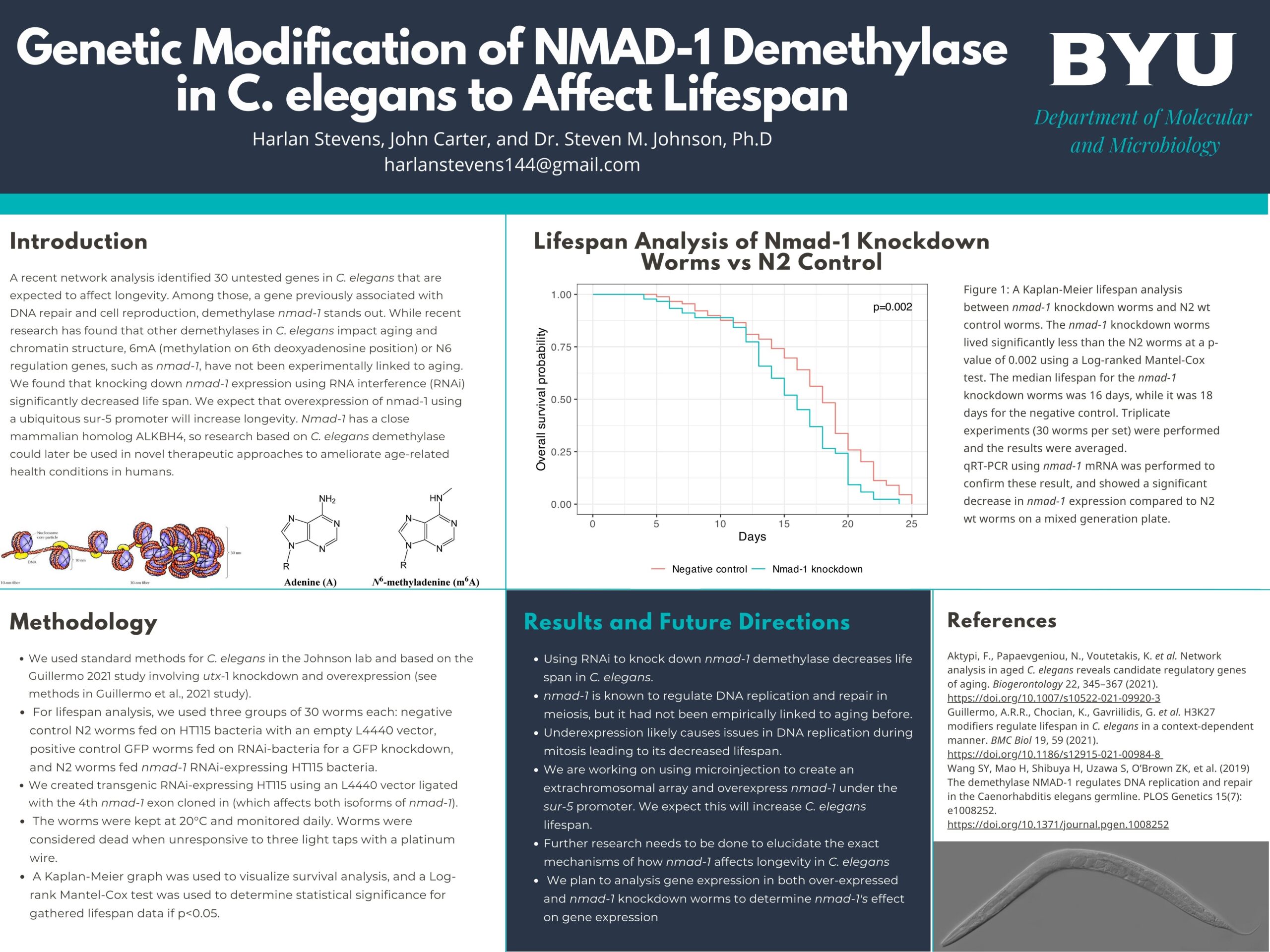Presenter Name: Harlan Stevens
Description
Almost all medical research focuses on extending human life. Recent studies into different aging mechanisms have revealed a new potential field of research for increasing lifespan: changing epigenetic marks. Histone and DNA methylation marks can repress or increase gene expression. As organisms age, alterations occur in epigenetic marks that control the chromatin state of DNA which exposes formerly protected DNA to genetic instability. A recent study identified 30 previously untested candidate genes in C. elegans (a model organism) that could affect longevity. Among those, a gene previously associated with DNA repair in meiosis, demethylase nmad-1 stands out. While recent research has found that other demethylases in C. elegans impact aging, N6 methylation regulation genes, such as nmad-1, have not been experimentally linked to aging. Our previous research proved that knocking down nmad-1 expression through RNA interference (RNAi) significantly decreased life span. We hypothesize that overexpression of nmad-1 using a ubiquitous sur-5 promoter will increase longevity. Research into nmad-1's effect on lifespan could link N6 methylation to new biological pathways. Nmad-1 has a close mammalian homolog ALKBH4, so research based on C. elegans demethylase could later be used in novel therapeutic approaches to ameliorate age-related health conditions in humans.
University / Institution: Brigham Young University
Type: Poster
Format: In Person
Presentation #D42
SESSION D (3:30-5:00PM)
Area of Research: Health & Medicine
Email: harlanstevens144@gmail.com
Faculty Mentor: Steven Johnson

